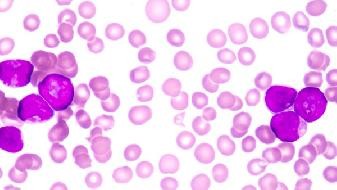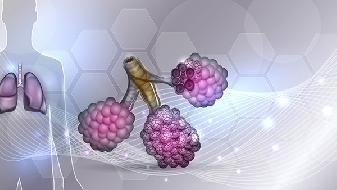Why does COVID-19 mutate so quickly? Will COVID-19 mutate all the time? Let's take a look together below!
 Why does COVID-19 mutate so quickly
Why does COVID-19 mutate so quicklyThe virus replication error will inevitably produce mutant strains. Mutation is a common phenomenon in the biological world, and viruses are no exception. And the mutation of the virus is faster and easier. The structure of the SEP virus is very simple -; — The protein shell wraps around genetic material, which consists only of DNA or RNA. Once it enters the cell, the virus's DNA or RNA begins to replicate in large quantities. During tens of thousands to hundreds of millions of replication processes, the virus will randomly make replication errors, that is, undergo mutations.

Generally speaking, DNA viruses are not easy to mutate, because DNA is a double stranded structure, and even if an error occurs in one strand during replication, the abnormality can be corrected by another strand, so the mutation rate is relatively low. Such viruses include herpes virus, hepatitis B virus, etc. Relatively speaking, RNA viruses are prone to mutation because they are single stranded viruses. If errors occur during replication, there is no other strand to correct them, resulting in a relatively high mutation rate. These viruses include coronaviruses, influenza viruses, hepatitis C viruses, etc. This is one of the reasons why COVID-19 is easy to mutate.
Retroviruses, especially AIDS, also mutate very quickly, because the replication of such viruses depends on reverse transcriptase, which has a high error rate in replication. Because of its rapid and diverse variation, it is difficult to develop a vaccine against AIDS. Similarly, the malaria parasite that causes malaria can also undergo changes, so even today, humans have not been able to develop a vaccine against malaria. Another scenario is that the host itself is a platform for microorganisms to exchange information and genetic components. The reason why the influenza A virus can infect both poultry, pigs, and humans is that some viruses can undergo gene exchange in different poultry, pigs, and humans, allowing them to infect both animals and humans. Viruses such as H5N1 and H7N9.
Why does COVID-19 mutate so fast? Will COVID-19 mutate all the time?
In 2009, the influenza A (H1N1) that caused about 18000 deaths around the world was initially mistakenly thought to be transmitted by pigs, so it was called swine flu. However, later research found that no one got sick from direct contact with pigs, and this influenza was transmitted from person to person. Later, researchers found that the genes of H1N1 influenza virus contained gene fragments of three types of influenza viruses: swine influenza, avian influenza, and human influenza. It is a typical variant virus produced by the interaction between human, animal, and avian influenza viruses, making it more pathogenic, easier to infect humans, and more serious in consequences. However, how did H1N1 influenza exchange genes to become more toxic and have a wider range of pathogenicity? Until the end of 2012, Hong Kong researchers studied another type of avian influenza -; — The research results of H5N1 virus only revealed that domestic ducks are the storage body of this virus. A large amount of virus hides in domestic ducks for a period of time, and then spreads through contact with birds in the following year (late winter and early spring). The avian influenza virus from ducks and chickens may also flow to pigs, interact with the swine influenza virus, and mutate into new strains, leading to the outbreak of a new type of influenza.
COVID-19 has developed into a global infection. In view of population, race, environment and other factors, it will inevitably continue to cause virus variation.
At present, the Delta mutant virus has become the main virus strain of the global COVID-19 pandemic, and has been prevalent in more than 130 countries and regions. This virus strain has the characteristics of fast transmission, rapid replication in vivo, and long negative transformation time.Relevant scientific research and epidemic prevention and control practices at home and abroad show that the Delta mutant has not led to subversive changes in the biological characteristics of COVID-19, the source of infection and transmission routes are basically clear, and the existing epidemic prevention and control measures are still effective for the Delta mutant. The existing vaccines still have good preventive and protective effects, which can reduce the risk of virus transmission in the population, decrease the transmission ability of infected individuals, and effectively reduce the incidence and mortality of severe illness after infection. Recently, China successfully blocked the local transmission of the Delta variant in several densely populated and mobile cities in Guangdong Province for the first time, proving that measures such as vaccination, wearing masks, washing hands frequently, maintaining social distance, and avoiding crowds are effective.
The above is the detailed information about why COVID-19 mutates so fast, will COVID-19 mutate all the time? I hope it can help you.







Comments (0)
Leave a Comment
No comments yet
Be the first to share your thoughts!